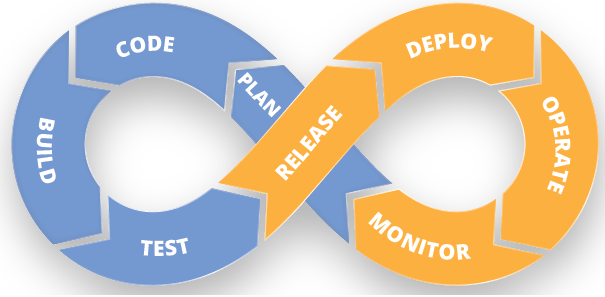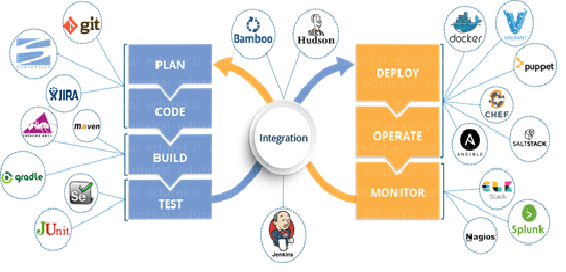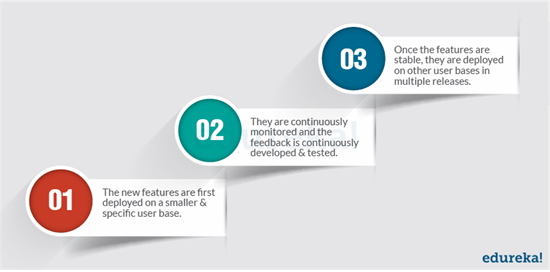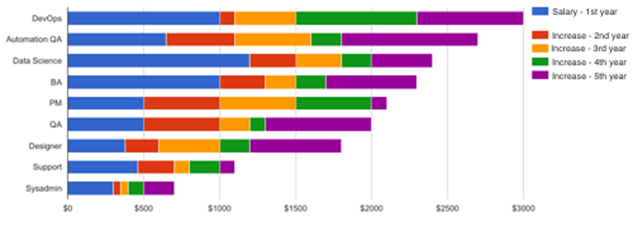Contrary to popular belief, DevOps is not a tool or a service. In fact, this trending technology is an approach, practice, methodology, culture or process. DevOps is used in an organization for faster collaboration, integration and communication between the Development and Operational teams.
As per the definition, DevOps methodology was originally introduced to unify the software development (Dev) and software operation (Ops) branches of an SDLC, but it is now being used in several different domains as well because of its pros.
But, why should you learn DevOps? What makes this methodology future-proof that even years after it was initially conceptualized, it is more popular than ever?
Here are 5 major reasons to learn DevOps this year:
-
DevOps has a Gentle Learning Curve
There are several technologies that might take you years to master and apply in your professional career. DevOps, in many ways, is unlike any of these. To be honest, anyone, from any kind of background can get into, and master this trending technological approach.
Anyone who has basic knowledge on one scripting language and is clear with Linux fundamentals is an ideal candidate to learn DevOps.
To become a DevOps Engineer, you need to have a good understanding of DevOps key concepts and its various phases. Each of these phases have their own set of tools that you can learn. Because of this, any budding DevOps professional should have good knowledge and hands-on experience in major DevOps tools like Git, Jenkins, Puppet, Chef etc. When it comes to coding and scripting, languages like Python, Ruby or Perl would be necessary.
-
DevOps maximizes Job Opportunities with Higher Paychecks
Most of the learning we do has one sole purpose — to get into the best possible job and earn what you desire. DevOps not only help you achieve this, but it can help you grow faster in your career.
There are several different DevOps job opportunities that make this possible. After learning DevOps, you can get into roles such as:
- DevOps Engineer
- DevOps Architect
- DevOps Software Tester
- DevOps Evangelist
- Automation Engineer
- Automation Architect
- Integration Specialist
- Project Manager
- Security Engineer
- Release Manager, and many more.
And that’s just the icing on the cake.
Most of the DevOps job roles not only lead to career growth, but they also come with a fat paycheck.
According to Indeed.com, the average salary of a DevOps Engineer in 2017 in the US is somewhere around $123,000 annually. Similar salary trends can be seen globally.
One more thing to keep in mind here is that most companies are currently looking for people with a wide variety of skills for cost optimization purposes. This means that even if you are appearing in an interview for a development job role, the interviewers may expect you to understand the basic process of working with test cases and deployment as well. As DevOps professionals work with several different tools which bridge the gap between the development, testing and deployment processes, they will automatically get priority during the hiring process.
-
Innovation is Key for a DevOps Professional
DevOps allows organizations to analyze user behavior and bring required changes in the consecutive cycles. This trend allows companies to efficiently release updates to their products as per the reception from users, bringing about necessary changes whenever required as the system is continuously integrated.
Moreover, the continuous monitoring and delivery nature of DevOps reduces the reaction time on the development side, increases the overall efficiency of the system and promotes faster release cycles. This means that there is minimum delay in deploying bug fixes or new releases of the software.
DevOps also strongly advocates automation because of which most of the processes in the whole can run smoothly with bare minimum human intervention. Because of this, DevOps professionals do not have their hands full all the time allowing them to use the available free time to improve the final product that could lead to better customer satisfaction.
As the whole operation is dynamic, DevOps working environments are extremely energetic making them great places to work at. So, if you wish to be part of such a dynamic team, why not learn DevOps this year?
-
DevOps Decreases the Complexity of the SDLC
There are several occasions where the principle ‘Simpler is Better’ can be applied. This thought is very true when it comes to software development and deployment as well.
While in traditional development models, all the individual stages were performed in a linear fashion (with exception to the V-Model and the Agile Model), DevOps boosts running of these processes parallelly.
In DevOps, coders are required to integrate their code at regular hours for the other teams to verify and validate. This practice is known as continuous integration.
Simplified DevOps Model
As the system promotes continuous integration, the final product will be as perfect as possible leading to higher customer satisfaction. To top it off, bringing about any changes or modifications to this system will be simplex when compared to other SDLC models.
Let’s understand this with a case study.
In 2011, Facebook rolled out a bundle of new features including timeline, ticker and music functionalities to its 500 million users across the globe. The huge traffic that was generated on the platform following the release of these updates led to a server meltdown.
This incident led to re-evaluation and reassessment of strategies, resulting in the company coming up with the Dark Launching Technique. Using the DevOps principles, Facebook created the following flow to govern the launch of new features:
Facebook’s Dark Launching Technique
-
DevOps Allows You to Grow Professionally
If all of that was not enough, learning DevOps will allow you to grow as a professional when compared to most other career paths. As there are so many different tools to work with and several environments to work in, a DevOps professional will get plenty of opportunities to learn and grow in their career.
In conclusion, there are so many roles available in the DevOps domain at every level that any professional with enough exposure to different available tools can get great opportunities to move into the next level.
You will also get incremental salary hikes in your DevOps career as your experience increases.
2017 survey by dou.ua showcasing domain-specific salary hikes
So, now that you know a few of the reasons to get into this popular technology, let’s understand whether you should learn DevOps and build a better career in it. For that, here is a short checklist that may help you decide better:
- Are you someone who likes to innovate and work towards building better products?
- Is working in the higher management your goal?
- Do you strive to add new skills to your resume day-in and day-out?
If your answer to all these questions is ‘yes,’ then there should be no doubt for you to start your journey into the DevOps world.
DevOps is changing the IT industry as we speak, and most of the companies and organizations have already shifted their workflows to a DevOps model because of its advantages. This, along with several other factors, should be enough for you to learn DevOps now.










